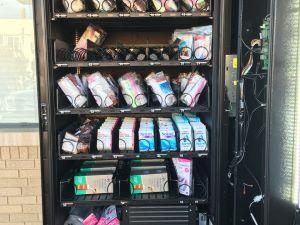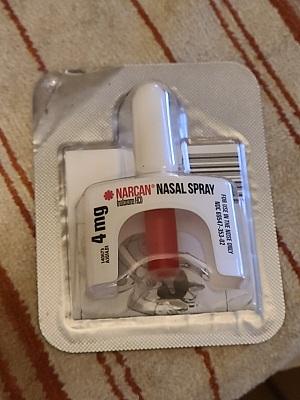New York City opened safe injection sites in December, and now it is moving to have naloxone vending machines operating across the city by February.
Mississippi lawmakers are moving to pass a medical marijuana bill more than a year after voters at the polls said they wanted it, a bipartisan pair of Florida lawmakers are seeking to tighten regulations around Delta-8, and more.
An NYPD sergeant made a bad choice of a boyfriend, a Houston constable made a bad choice to escort what he thought was a load of dope, and more.
A Florida bill seeks to make it easier to prosecute drug overdoses as murders, an Austin initiative to decriminalize marijuana possession has enough signatures to qualify for the May ballot, and more.
Florida Democratic lawmakers urge the Republican legislature to pass a marijuana legalization bill, an Oklahoma Republica lawmaker wants to tighten up the state's medical marijuana law, and more.
Ohio marijuana legalization campaigners take a second stab at coming up with enough signatures for their initiated statute, Virginia lawmakers file bills to defelonize peyote and psilocybin mushrooms, and more.
It's January, and the marijuana bills are coming fast and furious, a Utah bill would create a psychedelic therapy task force, and more.
The prospects for home marijuana gardens in the Garden State grow dim, black men are bearing the brunt of the fatal overdose crisis, and more.
The city of New York is about to embark on a new program aimed at reducing the toll of drug overdoses in the city: naloxone vending machines. Naloxone is an opioid overdose reversal drug that has saved tens of thousands of lives, and the city wants it to be conveniently and easily available.

vending machine with naloxone and other harm reduction supplies, Cincinnati (caracole.org)
In December 2020, the city's Department of Health and Mental Hygiene and the Fund for Public Health published a request for proposals (RFP) to install ten vending machines dispensing naloxone, as well as other wellness goods, such as safe sex items and toiletries, for its
Public Health Vending Machine Initiative.
"The purpose of this RFP is to support low-barrier access to overdose prevention and harm reduction supplies," the department said.
Bids are due later this week, with a contract start-up date of February 7. The program will run through June at a cost of $730,000. The machines will be installed in all five boroughs of the city in neighborhoods most impacted by drug overdoses.
The priority neighborhoods mentioned in the RFP are scattered throughout the city's five boroughs and include East New York, Crotona-Tremont, Highbridge-Morrisania, Hunts Point-Mott Haven, Fordham- Bronx Park, Pelham-Throgs Neck, Central Harlem, East Harlem Union Square, Rockaway, Stapleton-St. George, and South Beach-Tottenville.
"Overdose deaths in New York City are not equally distributed citywide, with some groups and neighborhoods disproportionately experiencing increases in the rate of overdose death," the department explained in the RFP. "During the previous three years, overdose rates among White New Yorkers decreased; however, rates increased among Black New Yorkers during the past year and rates among Latinx New Yorkers have increased for five consecutive years. Structural racism in drug policy and enforcement has been linked to decreased access to services, poorer health outcomes, and increased overdose risk."
The department reported that opioid overdose deaths had reached "epidemic levels" by 2019, with 1,463 unintentional overdose deaths in the city. More than four out five of those overdose deaths involved opioids, with the fast-acting synthetic opioid fentanyl involved in more than two thirds of them.
The city's move is earning kudos from the Drug Policy Alliance (DPA), which says it supports the plan.
"This approach is consistent with harm reduction strategies that seek to meet people who use drugs where they're at and ensure that people have access to safe resources to prevent blood-borne illness and distributing naloxone to people who are the most likely to encounter an overdose and be able to save lives," said DPA director for civil systems reform Melissa Moore in an email with the Chronicle. "The free vending machines mean that people will be able to access these supplies on their schedule and on their timeline, and without the stigma or shame."
Moore noted that the city made the groundbreaking move of opening the nation's first
officially sanctioned safe injection sites in December, but said there was still more to be done, especially around creating a safe drug supply.
"At this time there is a huge issue around poisoning and contamination in the drug supply (and significant disruption of the supply chain), so there is a need for more robust drug checking, especially for the amount of fentanyl in a substance, to save lives," she said. "This would include making sure that people who use drugs have access to this equipment at harm reduction programs. There can and should also be movement on safe supply options, as a way to further deal with the contamination and poisoning."
But's that is not all, she said.
"Additionally, if we want to save lives, reduce criminalization, and curb racial disparities, we need comprehensive, innovative, and forward-thinking approaches like decriminalizing personal possession of drugs. This would build on Measure 110, which was passed by two-thirds of voters in Oregon and codify proven public health approaches over criminalization and other failed enforcement tactics of the past."
New York City's naloxone vending machine program is a widely noted harm reduction innovation, but it is not the first in the country. That distinction may go to Las Vegas, which had naloxone vending machines in 2019. And last year, the city of Cincinnati rolled them out in March and the state of Indiana deployed 19 of them in December.
The overdose crisis requires innovation, and getting the opioid overdose reversal drug into the hands of people who could use it is a good example of that. It won't solve the problem -- that will require much more radical shifts in public policy -- but it will reduce the harm.
back to top
Mississippi lawmakers are moving to pass a medical marijuana bill more than a year after voters at the polls said they wanted it, a bipartisan pair of Florida lawmakers are seeking to tighten regulations around Delta-8, and more.
FloridaFlorida Bipartisan Bill Seeks to Tighten Regulations on Medical Marijuana. Democratic and Republican lawmakers are teaming up in a bid to make it more difficult to buy and sell medical marijuana-related products and they are aiming at Delta-8 tetrahydrocannabinol (THC) in particular. Delta-9 THC is the most potent psychoactive compound found in marijuana, but Delta-8 also produces psychoactive effects and is considered legal under federal law because it has never been evaluated by the Food & Drug Administration. Sponsored by Reps. Spencer Roach (R-North Fort Myers) and Andrew Learned (D-Brandon), House Bill 679 would increase regulations on Delta-8 and limiting the scope of products protected by the state's medical marijuana law. The bill would prohibit Delta-8 sales to people under 21, limit advertising toward children, create evaluation procedures for new products, and prevent medical marijuana treatment centers from selling licenses for profit.
Mississippi
Mississippi Legislature Takes Up Medical Marijuana. More than a year after voters approved medical marijuana and months after the state Supreme Court nullified the will of the voters, the state legislature is ready to respond. On January 11, Sen. Kevin Blackwell (R-Southaven) filed , which has been referred to the Senate Public Health and Welfare Committee and could see action as soon as this week. If it passes the committee, it would then head for a Senate floor vote. Then it would go to the House, but House Speaker Phillip Gunn (R) has said medical marijuana is not a big priority of his.
Mississippi Senate Approves Medical Marijuana Bill. The state Senate on Januaryt 13 approved its medical marijuana bill, Senate Bill 2095. Senate passage comes more than a year after voters approved medical marijuana at the ballot box, only to see that approval overturned by the state Supreme Court. Legislators and Gov. Tate Reeves (R) vowed to pass a medical marijuana bill, but that was delayed after Reeves objected to some provisions of proposed legislation. The bill as passed attempts to address those concerns by allowing for a local opt-out option and by lowering permissible amounts of medical marijuana that patients may possess. The bill now heads to the House, where prospects are less clear.
Oklahoma
Oklahoma Lawmaker Will File Bill to Tighten Up Medical Marijuana Law. State Rep. Sean Roberts (R-Hominy) said on Wednesday that he plans to file a bill to modify the modify the Oklahoma Medical Marijuana and Patient Protection Act and the Oklahoma Medical Marijuana Waste Management Act. The bill would tighten residency requirements for marijuana businesses, and if an Oklahoma resident is found to be a cutout for an entity from outside the state, his marijuana business license would be suspended. "When medical marijuana was legalized in Oklahoma, it basically created a 'Wild West' situation as we did not have enough legal structure in place to address all future issues that could arise," Roberts said. "As the years have passed, we have a better understanding of what we are doing right and what we need to fix."
back to top
An NYPD sergeant made a bad choice of a boyfriend, a Houston constable made a bad choice to escort what he thought was a load of dope, and more. Let's get to it:
In Houston,
a former deputy constable pleaded guilty January 6 to escorting a tractor-trailer he thought was filled with drugs with his marked constable vehicle. Alexander Reyes, 49, got $6,000 for the escort job, but it was actually an undercover sting with fake cocaine. He copped to conspiracy to possess with intent to distribute more than five kilograms of cocaine. He is looking at up to life in prison when sentenced in March.
In New York City, a former NYPD sergeant was sentenced last Thursday to probation for being a courier for a heroin operation run by the Nine Trey Gangsta Bloods. Arlicia Robinson, 41, got a lenient sentence of four years' supervised release after she was busted in a reverse sting operation when the sentencing judge said she had turned her life around. She was a girlfriend of one of the gang members.
In San Diego, a former state prison guard was sentenced last Thursday to three years in prison for smuggling drug and cellphones into the Richard J. Donovan Correctional Facility. Anibal Navarro, 43, had pleaded guilty to federal bribery and conspiracy charges and admitted to smuggling phones, methamphetamine, heroin, marijuana and other contraband into the prison. He went down after the inmate who recruited to deliver drugs in return for cash was busted and named him. He admitted to smuggling more than 500 grams of drugs into the prison and was paid between $1,000 and $2,000 per delivery.
back to top
A Florida bill seeks to make it easier to prosecute drug overdoses as murders, an Austin initiative to decriminalize marijuana possession has enough signatures to qualify for the May ballot, and more.

Austin voters are nearly set to vote on a municipal marijuana decriminalization initiative in May. (Creative Commons)
Austin Appears Headed for May Vote on Marijuana Decriminalization Measure. The Austin city clerk verified Monday that a campaign to put a measure on the May municipal ballot to decriminalize marijuana and ban no-knock raids has collected enough signatures to qualify. But the city council must first vote to put it on the ballot. The measure, backed by Ground Game Texas, would bar Austin police from ticketing or arresting people for low-level marijuana or pot paraphernalia charges, or paying to test substances suspected of being marijuana. But possession would remain a misdemeanor under state law, and it is unclear whether Austin police would abide by such an ordinance.
Medical Marijuana
Mississippi Legislature Takes Up Medical Marijuana. More than a year after voters approved medical marijuana and months after the state Supreme Court nullified the will of the voters, the state legislature is ready to respond. On Tuesday, Sen. Kevin Blackwell (R-Southaven) filed Senate Bill 2095, which has been referred to the Senate Public Health and Welfare Committee and could see action as soon as this week. If it passes the committee, it would then head for a Senate floor vote. Then it would go to the House, but House Speaker Phillip Gunn (R) has said medical marijuana is not a big priority of his.
Sentencing Policy
Florida Bill to Ease Murder Prosecutions in Drug Overdose Cases Advances. A bill that would make it easier to prosecute fatal drug overdoses as first-degree murder cases was approved by the Senate Judiciary Committee on Monday. Sponsored by state Sen. Jason Brodeur (R-Sanford), Senate Bill 190 would lower the standard for bringing a murder charge from requiring that prosecutors prove the drug was the "proximate cause" of an overdose death to proving only that it was a "substantial factor."
Brodeur said prosecutors were complaining that they were having difficulty bringing murder charges because "very frequently victims have multiple substances” in their systems when they overdose. "In moving from proximate cause to substantial factor, what we're saying is, rather than getting a battle of the experts that have to prove that this (drug) was the actual cause of death versus something else in your system, as long as there was enough of this one by itself to cause death, that’s enough for prosecution. And that makes it much simpler," Brodeur said.
Public defenders warned that the measure could remove the incentive for people to report overdoses "if they know that there’s a possible death penalty prosecution" that could result. The bill also would add methamphetamine to the list of drugs that can be eligible for first-degree murder charges in overdose deaths. That list currently includes such substances as cocaine, opium and fentanyl. The proposal also would toughen penalties for selling controlled substances within 1,000 feet of facilities that provide substance abuse treatment.
A similar House Bill (HB 95) needs approval from the House Judiciary Committee before it could go to the House floor for consideration.
International
Global Coalition Launches Push to Reschedule Psilocybin Under International Rules. The newly formed International Therapeutic Psilocybin Rescheduling Initiative (ITPRI) has announced a new campaign to get psilocybin mushrooms rescheduled at the international level. The group says it is seeking the change in order to ease barriers to research. Member organizations include the Multidisciplinary Association for Psychedelic Studies (MAPS), Beckley Foundation, Mind Medicine Australia, Drug Science and Open Foundation. The coalition wants psilocybin removed from Schedule I of the UN's 1971 Convention on Psychotropic Substances, arguing that it is neither especially risky nor with only limited therapeutic uses, the two conditions required for drugs to be placed in Schedule I. As a first step, the coalition will attempt to find a UN member nation to ask for a formal review of the risks and benefits of the psychedelic.
back to top
Florida Democratic lawmakers urge the Republican legislature to pass a marijuana legalization bill, an Oklahoma Republica lawmaker wants to tighten up the state's medical marijuana law, and more.

Mississippi Gov. Tate Reeves (R). Will the Senate's modified medical marijuana bill be good enough for him? (ms.gov)
Florida Democrats Call for Marijuana Legalization. State Democratic lawmakers want to legalize marijuana this session and are calling on the state's GOP-controlled legislature to get on board. The Democrats have filed at least ten marijuana-related bills, including one outright legalization bill, House Bill 467. "A bill legalizing marijuana has never been heard in the Florida House," Democratic Rep. Yvonne Hinson said at a Thursday news conference. "That needs to change this year. States are legalizing cannabis all over the nation, and Florida is falling behind."
Medical Marijuana
Mississippi Senate Approves Medical Marijuana Bill. The state Senate on Thursday approved its medical marijuana bill, Senate Bill 2095. Senate passage comes more than a year after voters approved medical marijuana at the ballot box, only to see that approval overturned by the state Supreme Court. Legislators and Gov. Tate Reeves (R) vowed to pass a medical marijuana bill, but that was delayed after Reeves objected to some provisions of proposed legislation. The bill as passed attempts to address those concerns by allowing for a local opt-out option and by lowering permissible amounts of medical marijuana that patients may possess. The bill now heads to the House, where prospects are less clear.
Oklahoma Lawmaker Will File Bill to Tighten Up Medical Marijuana Law. State Rep. Sean Roberts (R-Hominy) said on Wednesday that he plans to file a bill to modify the modify the Oklahoma Medical Marijuana and Patient Protection Act and the Oklahoma Medical Marijuana Waste Management Act. The bill would tighten residency requirements for marijuana businesses, and if an Oklahoma resident is found to be a cutout for an entity from outside the state, his marijuana business license would be suspended. "When medical marijuana was legalized in Oklahoma, it basically created a 'Wild West' situation as we did not have enough legal structure in place to address all future issues that could arise," Roberts said. "As the years have passed, we have a better understanding of what we are doing right and what we need to fix."
International
Italy Certifies Signatures on Marijuana and Psilocybin Referendum. Nearly three months after supporters of referendum to legalize marijuana and magic mushrooms turned in more than 630,000 voter signatures, the Supreme Court of Cassation on Wednesday certified that they had collected enough valid signatures to qualify for the measure for the country's spring ballot. The measure still faces an additional hurdle before going to the voters: The Constitutional Court must now determine that the measure does not conflict with the constitution or the country's treaty obligations, and once it does so, the path to the vote is clear. The Constitutional Court will issue its decision on February 15.
back to top
Ohio marijuana legalization campaigners take a second stab at coming up with enough signatures for their initiated statute, Virginia lawmakers file bills to defelonize peyote and psilocybin mushrooms, and more.

A bomb dropped from a drone explodes as the Jalisco New Generation Cartel attacks its rivals in Michoacan. (Twitter)
Ohio Marijuana Legalization Initiative Campaign Hands in More Signatures. The Coalition to Regulate Marijuana Like Alcohol has handed in additional signatures after falling short earlier this month. Under state law, the campaign needs 132,887 valid voter signatures to begin the initiated statute process, which would then give state legislature four months to approve it. If it doesn't, campaigners would have to gather another round of signatures and then take the matter directly to the voters. The campaign handed in more than 200,000 raw signatures earlier this month, but the secretary of state's office determined that only 119,825 were valid. Now, the campaign has handed in an additional 29,918 raw signatures. Slightly more than 13,000 of them need to be found valid for the process to continue. Stay tuned.
Psychedelics
Virginia Lawmakers File Bills to Defelonize Peyote, Psilocybin Mushrooms. State Delegate Dawn Adams (D-Richmond) has filed a bill to reduce the penalty for possession of peyote and psilocybin mushrooms from a felon to a misdemeanor. The bill is House Bill 898. Adams, who is also a nurse practitioner, cited psilocybin's growing acceptance in medical contexts, saying "It is increasingly a recognized treatment for refractory depression and PTSD. It's changed people's lives." Companion legislation has been filed in the Senate, but prospects for passage are cloudy at best, especially in the House of Delegates, where Republicans historically unfriendly to drug reform took control after last November's election.
Drug Policy
Vermont Lawmakers File Drug Decriminalization Bill. Democratic and Progressive lawmakers have joined forces to file House Bill 644, which would decriminalize the possession and sale of personal use amounts of illicit drugs. The bill sponsored by Reps. Logan Nicoll (D) and Selene Colburn (P) would make possession or distribution of small amounts of drugs an offense punishable only by a $50 fine, which could be waived by completing a health screening through a new drug treatment referral system. The "benchmark personal use" threshold would be set by a new Drug Use Standards Advisory Board. The bill has 40 initial cosponsors, nearly one-third of the House.
Sentencing
Thousands of Federal Inmates Now Being Released Under First Step Act. Thousands of federal inmates, including many drug offenders, are now eligible for immediate release after the Justice Department published a rule Thursday allowing more prisoners to participate in programs that allow them to earn shorter prison sentences. The inmates will be transferred to residential reentry centers, supervised release programs, or home confinement.
The rule published in the Federal Register on Thursday sets out how the Bureau of Prisons should apply the First Step Act. That law gave the Justice Department and the Bureau of Prisons considerable leeway in interpreting how to implement it, including whether credits for good time and job training that occurred before the law passed could be used to apply for early release.
International
Mexico's Jalisco New Generation Cartel Deploys Drones to Bomb Rivals. Mexico's most powerful drug trafficking organization, the Jalisco New Generation Cartel (JNGC), has attacked rivals in Tepalcatepec, Michoacan, with bombs dropped from a drone. Video of the attack, which featured multiple bombs dropped from the sky, appeared on Twitter. It's just the latest violent attack on Michoacan residents as the JNGC engaged in turf wars with various rivals in the state.
Residents on the ground were eventually able to shoot down the drone, but not before it dropped multiple bombs on its target. Townspeople had briefly been in a brief gunfight with JNGC in the hours before the drone attack. The mayor of the municipality, Martha Laura Mendoza, said she has pleaded with federal authorities for help fending off continuing violence. "It's been four months," she added. "No one has contacted us or offered a solution!"
back to top
It's January, and the marijuana bills are coming fast and furious, a Utah bill would create a psychedelic therapy task force, and more.

Louisiana US Senate candidate Gary Chambers fires up for his first campaign ad. (YouTube)
Delaware Marijuana Legalization Bill Filed. State Democrats are back once again with a marijuana legalization bill. State Rep. Ed Osienski (D-Newark) has filed House Bill 150, which would legalize the possession of up to an ounce by people 21 and over, but bans people from growing their own. The bill also envisions a system of taxed and regulated legal marijuana commerce and includes a small social equity provision that would earmark a portion of pot taxes for aiding communities most hard hit by the war on drugs. But the bill's prospects are cloudy since it would need a supermajority to pass the legislature and would then face a governor reluctant to sign it.
Louisiana US Senate Candidate Smokes Blunt in Campaign Ad. Democratic US Senate candidate Gary Chambers on Tuesday released his first campaign ad, a video showing him smoking a marijuana blunt and calling for its legalization. "Every 37 seconds someone is arrested for possession of marijuana," said Chambers in the video. "States waste $3.7 billion enforcing marijuana laws every year. Most of the people police are arresting aren't dealers but rather people with small amounts of pot, just like me," he goes on. In a tweet accompanying his ad, Chambers added: "I hope this ad works to not only destigmatize the use of marijuana, but also forces a new conversation that creates the pathway to legalize this beneficial drug and forgive those who were arrested due to outdated ideology." He is running to challenge sitting US Senator John Kennedy (R).
Maryland Marijuana Legalization Constitutional Amendment Bill Filed. Delegate Luke Clippinger (D-Baltimore City) has filed House Bill 1, a marijuana legalization bill with a twist: It takes the form of a constitutional amendment, which would have to win a supermajority of both the House and Senate before going to voters at the polls during a general election. The measure would legalize marijuana possession for people 21 and over and set up a system of taxed and regulated marijuana commerce. If it gets past the legislature, voters would be asked: "Do you favor the legalization of adult-use cannabis in the State of Maryland?" Recent polls show roughly two-thirds of Marylanders are ready to free the weed.
Psychedelics
Utah Bill Would Create Psychedelic Task Force. Rep. Brady Brammer (R-Highland) has filed House Bill 167, which would create a Mental Illness Psychotherapy Drug Task Force that would "study and make recommendations on drugs that may assist in treating mental illness." The task force would be co-chaired by the head of the state Health Department and the head of the Huntsman Mental Health Institute and would also include a licensed psychiatrist; a licensed psychologist; a representative from the Utah Medical Association, someone who researches and studies neuroscience and mental health; a health system representative; and a patient who is knowledgeable about using a psychotherapy drug, among others. Although not mentioned specifically in the bill, supporters say psilocybin, the psychoactive compound in magic mushrooms, is the drug most likely to be considered by the task force.
Harm Reduction
New Jersey Governor Signs Syringe Access Expansion Bills into Law. Governor Phil Murphy (D) on Tuesday signed into laws a pair of bills that will ease access to syringes. The Syringe Access Bill (S-3009/A-4847) removes authority to approve and close syringe access programs (SAPs) from local municipalities and places that authority with the New Jersey Department of Health, aligning SAPs with other public health services. The Syringe Decrim Bill (S-3493/A-5458) decriminalizes possession of syringes and allows for expungement of previous convictions. By shifting authority from municipalities to the New Jersey Department of Health, this legislation effectively prevents the Atlantic City SAP, called the Oasis Drop-In Center and operated by South Jersey AIDS Alliance, from being closed by the Atlantic City Council. In July 2021, the Atlantic City Council voted to remove municipal approval from the SAP over the objections of people who use drugs, people living with HIV, local and statewide advocates, and the Murphy administration.
International
Canadian Harm Reductionists Sue Alberta Over Policy to Require Safe Injection Site Users Show Health ID Cards. Harm reduction groups are taking legal action to try to block the province of Alberta from requiring that people using a safe injection site show their Health Canada identification cards. The policy is set to go into effect on January 31, and harm reductionists say it will create a barrier to using the service and increase the risk of fatal overdoses. The Alberta Court of Appeal has agreed to an emergency hearing on January 27. This latest move comes after a provincial judge earlier this month dismissed an injunction that would have blocked implementation of the new rule.
Thailand to Decriminalize Marijuana. The Thai Food and Drug Administration is set to propose removing marijuana from the country's list of proscribed drugs on Wednesday, clearing the way for Health Minister Anutin Charmvirakul to grant final approval. "While the law change will allow all parts of cannabis to be bought, sold and used, recreational use will likely remain controlled as marijuana extracts with higher tetrahydrocannabinol levels that get people high will still be regulated," said Chaiwat Sowcharoensuk, an analyst at Krungsri Research. "Producers of soaps, beauty products and cosmetics from marijuana will likely be the ones to benefit the most from the decriminalization."
back to top
The prospects for home marijuana gardens in the Garden State grow dim, black men are bearing the brunt of the fatal overdose crisis, and more.

Black men are dying of drug overdoses at a rate higher than any other demographic group. (Creative Commons)
New Jersey Unlikely to Allow Home Marijuana Cultivation. Marijuana legalization proponent and incoming state Senate President Nick Scutari (D) has signaled that home cultivation of marijuana will not be allowed once the state's adult-use market launches. That launch date was originally set for the middle of next month but is now running behind schedule.
Scutari said he "did not see (home cultivation) happening right now" because it would only further the illicit marijuana market. "I'm not against marijuana being grown at home for medical purposes and maybe even just recreational purposes," Scutari said. "But we've got to let this industry… it's not even off the ground yet."
The issue of home cultivation is creating a divide between activists and marijuana businesses, with legal operators interested in minimizing home grows and protecting market share, while activists argue that medical marijuana patients in particular should have the right to grow their own.
Austin Marijuana Decriminalization, No-Knock Raid Ban Initiative Approved to Go Before Voters in May. The Austin City Council on Tuesday approved an activist-led initiative to decriminalize marijuana and ban no-knock police raids. That was the final obstacle on the path to putting the issue before city voters in municipal elections in May. The council could have adopted the measure as an ordinance, which activists said they would have preferred, but it instead deferred, leaving the call to the voters.
"The City Council's vote to schedule an election on the Austin Freedom Act is a testament to the incredible work of our organizers and volunteers who are fighting for progressive change in their community," Mike Siegel, political director of Ground Game Texas, said. "Thanks to their tireless efforts, voters will have the opportunity in May to end the criminalization of marijuana possession and the dangerous practice of no-knock police raids."
Medical Marijuana
Florida Bipartisan Bill Seeks to Tighten Regulations on Medical Marijuana. Democratic and Republican lawmakers are teaming up in a bid to make it more difficult to buy and sell medical marijuana-related products, and they are aiming at Delta-8 tetrahydrocannabinol (THC) in particular. Delta-9 THC is the most potent psychoactive compound found in marijuana, but Delta-8 also produces psychoactive effects and is considered legal under federal law because it has never been evaluated by the Food & Drug Administration.
Sponsored by Reps. Spencer Roach (R-North Fort Myers) and Andrew Learned (D-Brandon), House Bill 679 would increase regulations on Delta-8 and limiting the scope of products protected by the state's medical marijuana law. The bill would prohibit Delta-8 sales to people under 21, limit advertising toward children, create evaluation procedures for new products, and prevent medical marijuana treatment centers from selling licenses for profit.
Harm Reduction
Recent Overdose Surge Has Hit Black Men the Hardest. The Pew Research Center reports that amidst a record surge in drug overdose deaths, "while overdose death rates have increased in every major demographic group in recent years, no group has seen a bigger increase than Black men. As a result, Black men have overtaken American Indian or Alaska Native men and White men as the demographic group most likely to die from overdoses." Black men die of drug overdoses at a rate of 54.1 per 100,000, overtaking Native American men (52.1) and white men (44.2). Latino men died at a lower rate of 27.3 per 100,000, with Asian American men bringing up the rear with a rate of 8.5.
back to top








